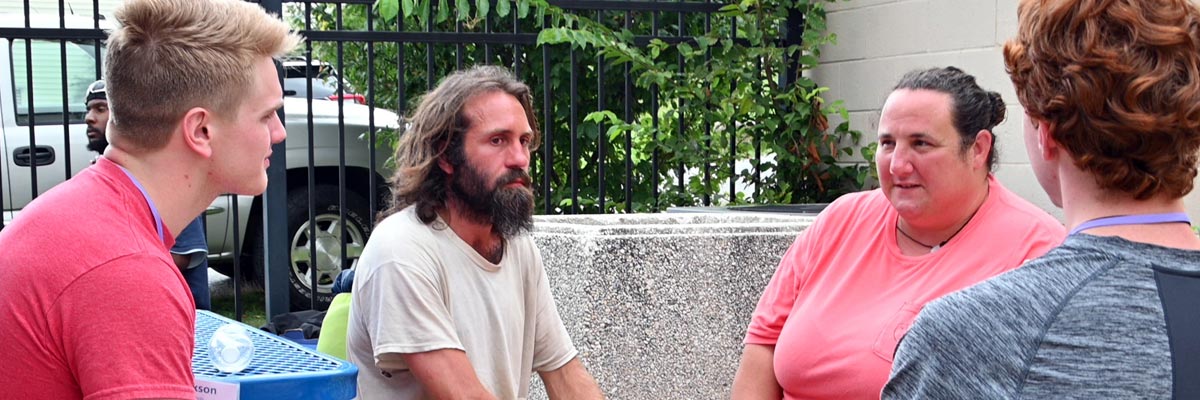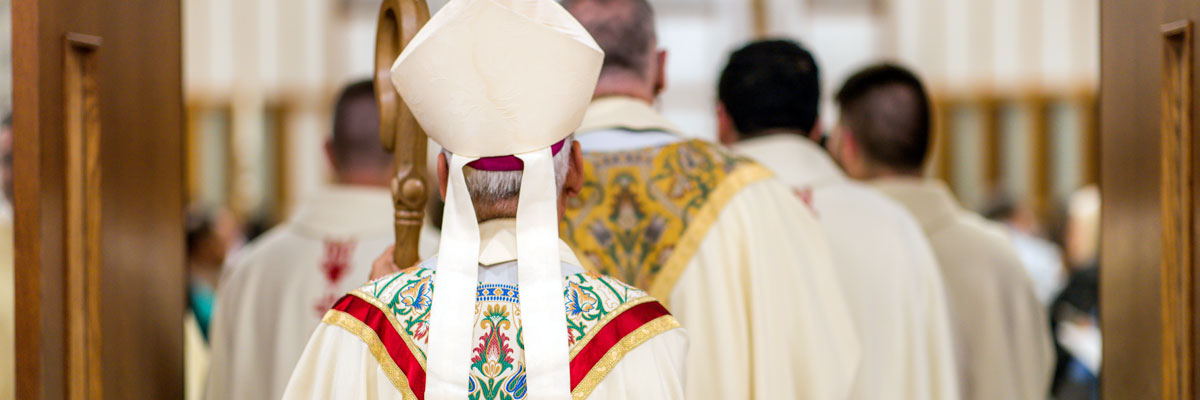Official Website of the
Catholic Diocese of Little Rock
Diaconate Ordination of Michael Johns
Published: May 24, 2016
Bishop Anthony B. Taylor preached the following homily at Blessed Sacrament Church in Jonesboro on Tuesday, May 24, 2016. It is based on the following readings: Numbers 3:5-9; Psalm 116; Acts 8:26-40; and John 15:9-17.

Bishop Taylor
Michael, I think it is quite remarkable that you chose the story of Philip and the Ethiopian eunuch for one of the readings for your ordination because this story, quite unexpectedly, draws together several elements of the diaconal ministry to which you are to be ordained today and the priestly ministry to which I hope to ordain you next year. After all, you don't stop being a deacon when you become a priest.
So, here we have Philip, one of the seven first deacons, chosen to bridge a gap that had arisen in the Church between the two language groups in the
These bilingual men had the specific mission of looking after those who were falling through the cracks, those who because of cultural differences were being neglected in the daily distribution of bread.
Today we formalize your response to the call of Jesus and his Church, committing yourself to a life of sacrificial love, loving others as Jesus has loved you. And so Jesus speaks directly to you when in today's Gospel he says: "It was not you who chose me, it was I who chose you to go forth and bear fruit."
But soon they do more than that. They become ministers not only of the bread — bread as in food for the poor, a symbol of the Eucharist — but also ministers of the Word. A fellow deacon, Stephen, becomes the first deacon preacher. He proclaims the Good News of Jesus Christ and pays for it with his life.
Stephen preached to Jews who spoke Greek. Philip will be the second deacon preacher and the first to preach to non-Jews, first in
Anyway, notice what happens: Philip, who has opened his heart to go wherever the Lord leads him, feels propelled by the angel of the Lord to then take advantage of whatever opportunities the Lord provides him to proclaim the Good News of Jesus Christ, just as Stephen had done.
In this, he is a model for us of how to seize the moment when the opportunity to reach out to others presents itself. In this case, Philip saw a hunger in this man — after all, he overheard him reading a passage from the prophet Isaiah.
And so, while running to catch up with a moving chariot, which would not have looked very dignified to others, Philip forgets decorum and runs to catch up with this dark-skinned foreigner in order to open up for him the meaning of that passage from Isaiah: "Like a sheep he was led to the slaughter ..."— and thus, proclaim Jesus to him as the fulfillment of that prophecy.
Soon this leads to him baptism — the first recorded baptism by a deacon in the history of the Church — the baptism of a man who will return to
Michael, today you will be ordained to be a new Philip for our times. A minister of charity like those first deacons, chosen to bridge differences within the Church, with special concern for the marginalized and those falling through the cracks.
A minister of the Word, called to proclaim the Good News of Jesus Christ courageously like the deacon Stephen, leaving your comfort zone to do so like Philip, ready to respond from the heart to the pull of the Holy Spirit when new opportunities present themselves for bringing the light of faith to people hungry for the Lord, perhaps without knowing it.
Bringing the light of the Gospel to shine in the darkness of today's world. And of course, baptizing like Philip did.
Today we formalize your response to the call of Jesus and his Church, committing yourself to a life of sacrificial love, loving others as Jesus has loved you. And so Jesus speaks directly to you when in today's Gospel he says: "It was not you who chose me, it was I who chose you to go forth and bear fruit."









